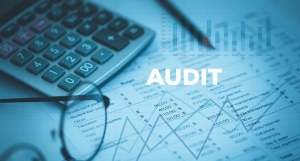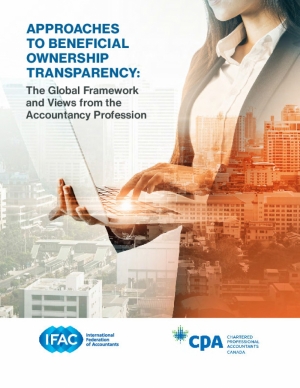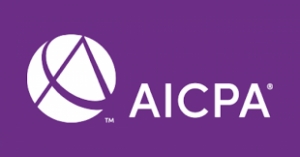عرض العناصر حسب علامة : CPA
الثلاثاء, 21 يونيو 2022 14:18
كيف يمكن لتحليل البيانات تبسيط شركتك
على الرغم من أنه سيتم استخدام تحليلات البيانات على نطاق أوسع في المستقبل في المراجعة والتخطيط المالي، لذا فإن إتقان تحليلات البيانات لا يزال عملاً قيد التقدم.
معلومات إضافية
-
المحتوى بالإنجليزية
How Data Analytics Can Streamline Your Firm
In the not-so-distance past, accountants spent the majority of their time sorting through stacks of paperwork, posting accounting entries manually, and making sure that those endless stacks of paperwork were properly filed at the end of the day. When technology arrived, it allowed accountants to spend more of their time using their expertise, offering their clients a more advanced menu of options including tax planning, expense analysis, and consulting.
Most accounting firms welcomed technology into their firms; adding new products and programs designed to streamline operations while reducing paperwork. But like anything technology-related, as soon as one process is put into place, another more advanced process, program, or product is introduced. Simply keeping pace with the latest technology can quickly become a job all on its own.
What are data analytics?
While computers, tablets, notebooks, and software applications will continue to evolve, one area that accountants should be taking a longer look at is data analytics. Used to predict and better achieve designated outcomes, data analytics can be used in monitoring, auditing, and financial planning, and can be particularly helpful when used to better identify client behavior.
There are four types of data analytics:
Descriptive analytics – Descriptive analytics is used in reporting and helps to provide insight into historical information.
Diagnostic analytics – Used when examining variances between sets of results, diagnostic analytics is used to determine why something occurred.
Predictive analytics – Predictive analytics is used when looking to the future, helping firms predict possible outcomes by examining past data.
Prescriptive analytics – Prescriptive analysis assists in choosing the best option to achieve desired results.
Though data analytics will be used more broadly in the future for everything from auditing to financial planning, mastering data analytics is still a work in progress. Before data analytics can be effectively used, partners and staff must develop the skills needed to use the process properly.
How to get started in data analytics
Depending on your current skill level, there are a variety of tools and methods you can utilize to become better skilled at data analytics.
Utilize free and low-cost resources
There are a variety of resources available on the internet that can help you become acquainted with data analytics. While they won’t give you the knowledge that you need to implement data analytics firm-wide, they can help you identify both strengths and weaknesses and where you may need the most help. For example, there are numerous websites available that provide a detailed overview of data analytics that can also help point you to more in-depth study opportunities.
CPE credits
Since you have to obtain CPE credits, why not take a data analytics class? This is a great opportunity to learn more about the process, explore the analytics you’re already using in your firm, and explore the possibility of using data analytics more extensively in your firm.
For those looking to learn more about data analytics, the AICPA offers a variety of resources to both members and non-members including certification programs in data analytics, cybersecurity, robotic process automation, and several others. The AICPA also offers the Certified Information Technology Professional (CITP) credential to members, which validates expertise in the area of data analytics. More information is available here.
Conferences and in-house training
Conferences can be a great way to hone your skills. There are numerous data analytics conferences happening both online and in person. Sending a few key individuals to these conferences can be helpful since they can return to the firm armed with knowledge that can be shared with other staff members.
Bring in a professional
If you have room in your budget to hire another employee, you may want to consider hiring someone skilled in advanced technology including data analytics. This can be particularly beneficial if you’re looking for someone to train others in your firm on data analytics and advanced technology. If you don’t have the budget for a full-time employee, consider bringing in a consultant that can take charge of training employees in the basics.
Accept that there will always be something new to master
By the time you become familiar with data analytics and begin to use advanced technology in your firm, there will likely be other new skills to learn. As a CPA, continuous learning is key to remaining competitive, and becoming comfortable with change can be key to staying relevant in your field.
Make technology key in your firm
Technology isn’t only data analytics. It’s also the processes you utilize and even the software you use. That means eliminating multiple programs for multiple functions and making the move to a more integrated software system. It also means making the move to cloud technology and leaving those on-premise applications behind. Making the commitment to understanding and adapting advanced technology in your firm can help you create a more streamlined work environment for you and your staff.
نشر في
تكنولوجيا المعلومات
موسومة تحت
الأربعاء, 16 مارس 2022 12:50
9 مهارات اساسية يحتاجها المحاسب للنجاح
نشر في
موضوعات متنوعة
الأربعاء, 28 سبتمبر 2022 11:52
جمعية المحاسبين الدوليين المعتمدين تحدد خارطة طريق الاستدامة لعام 2021 للمحاسبين
تتزايد أهمية تقارير الاستدامة في جميع أنحاء العالم حيث يطالب أصحاب المصلحة بشكل متزايد بمزيد من التبصر في إدارة الشركات للمخاطر والفرص البيئية والاجتماعية والحوكمة (ESG)
معلومات إضافية
-
المحتوى بالإنجليزية
Association sets out 2021 sustainability road map for accountants
Ellen Goldstein
Sustainability reporting has been growing in importance around the world as stakeholders increasingly demand greater insight into companies’ management of their environmental, social, and governance (ESG) risks and opportunities, and organizations see the benefits of managing ESG issues. That trend has advanced how the accounting profession supports reporting and assurance services around ESG information. To help public accountants and finance professionals navigate ESG-related education and resources, the Association of International Certified Professional Accountants, the unified voice of AICPA and CIMA, shared a 2021 road map.
The Association’s efforts reflect CPAs’ and Chartered Global Management Accountants’ decades of work in helping organizations report on and communicate their commitment to the priorities, values, and concerns of a diversified marketplace.
“This year we have seen the COVID-19 pandemic and tremendous environmental and social risks greatly impact our communities. These factors, coupled with stakeholder demand, are driving more organizations to report reliable and accurate ESG information that extends beyond financial information,” said Sue Coffey, CPA, CGMA, the Association’s executive vice president–Public Practice. “For decades, the Association has been ahead of the curve, playing a critical role in supporting CPAs and CGMAs to anticipate, report on, and mitigate ESG risks, as well as in providing guidance for assurance services. We have a long-standing commitment to providing relevant nonfinancial information, and our work with framework- and standard-setters reflects this.”
Coffey added, “CPAs and CGMAs are uniquely qualified to help organizations increase stakeholder trust and confidence, improve decision-making, and lower cost of capital. The Association is committed to providing educational resources for professionals working on behalf of corporations and robust authoritative guidance for those who play an independent role providing auditing and assurance services.”
For example, in 2020 the Association:
Collaborated with the Sustainability Accounting Standards Board (SASB) and the World Business Council for Sustainable Development (WBCSD) on a virtual event discussing the effects of COVID-19 on investor demand for ESG reporting and the importance of reliable ESG disclosures.
Partnered with the Global Reporting Initiative (GRI) to develop assurance FAQs that help organizations that report in accordance with GRI Standards and need more information about assurance engagements performed by CPAs in the United States.
Launched a series of educational briefs exploring sustainability, business, and the role of finance professionals.
These resources, coupled with existing AICPA attestation standards and guidance, as well as the Association’s support for the creation of a new sustainability standards board under the IFRS Foundation, provide a solid foundation for the Association’s 2021 ESG road map.
Looking ahead to 2021, the Association plans to offer several resources to CPAs and CGMA designation holders who provide sustainability reporting and assurance services. The Association’s plans include:
Publishing practical research tools from the CGMA Sustainability and Business Research Programme. These will reflect the Association’s appreciation that the relationship between business and sustainability is being reset, which significantly impacts the mechanics and mindsets of accounting, finance, and business globally.
Developing a road map for U.S. audit practitioners, in partnership with the Center for Audit Quality, to help them understand the risk and legal considerations associated with performing attestation engagements on ESG information disclosed in SEC filings.
Offering educational events in partnership with SASB and other organizations.
Developing educational briefs on the role of finance and management accounting and summary briefs on sustainability standards and frameworks and key climate change issues.
Updating the AICPA Sustainability Attestation Guide to reflect anticipated changes to the AICPA Auditing Standards Board’s Attestation Standards. The Guide was issued in 2017 and updated in 2018.
“Organizations around the world are resetting the way they think about sustainability, and this has significant impact on stakeholders’ trust in their nonfinancial data, risk management procedures, and business recovery,” said Andrew Harding, FCMA, CGMA, the Association’s chief executive–Management Accounting. “As core members of almost every business, government, and nongovernmental organization, CGMAs play a pivotal role in providing nonfinancial and financial management information to drive business performance, develop strategies, and influence decision-making. They bring a unique set of skills and knowledge to the table and can work with stakeholders to integrate responsible practices into their business and operating models.”
Harding added, “We believe that we will see profound changes in the next few years in the work of management accounting and public accounting to embed new practices and standards relating to sustainability. The Association will continue to provide education and guidance to all areas of the profession, ensuring that it is ahead of this transformation.”
For more information on the Association’s sustainability resources, visit:
Public accounting resources
Management accounting resources
Get more news, resources, and professional insights by logging in and selecting your preferences so you can see more from the AICPA on topics that mean the most to you.
نشر في
محاسبة و مراجعة
موسومة تحت
الأحد, 26 يوليو 2020 14:25
تقرير المراجعة النظيف القياسي Standard Unqualified Audit Report
نشر في
محاسبة و مراجعة
الإثنين, 01 يونيو 2020 14:56
الطبيعة المتغيرة لأدلة المراجعة الناشئة عن COVID-19
يوضح جيريمي جوستين، كبير مسؤولي المخاطر ونائب الرئيس، لدي CPA CANDA، الطبيعة المتغيرة لأدلة المراجعة والاعتبارات للمراجعين لدعم أداء عمليات مراجعة عالية الجودة في البيئة الحالية.
نشر في
محاسبة و مراجعة
موسومة تحت
الإثنين, 03 فبراير 2020 11:34
كيف يمكن أن يظل المراجعون مستقلين أثناء تقديم المشورة بشأن الإعتراف بالإيرادات
نشر في
محاسبة و مراجعة
موسومة تحت
الإثنين, 03 فبراير 2020 09:05
معيار جديد يضيف مرونة للإجراءات المتفق عليها
سيكون لدى ممارسي سلطة الائتلاف المؤقتة مزيدًا من المرونة لأداء ارتباطات الإجراءات المتفق عليها بموجب معيار جديد أصدره يوم الخميس مجلس معايير التدقيق و المراجعة في المعهد الأمريكي للمحاسبين القانونيين
نشر في
محاسبة و مراجعة
موسومة تحت
الثلاثاء, 24 مايو 2022 08:35
يسعى المعهد الأمريكي للمحاسبين القانونيين للحصول على مدخلات حول التغييرات المقترحة لامتحان السي بي ايه
يسعى المعهد الأمريكي للمحاسبين القانونيين للحصول على مدخلات حول التغييرات المقترحة لامتحان السي بي ايه
نشر في
شهادات مهنية
الخميس, 17 أكتوبر 2019 10:36
المشورة المهنية: المحاسبة مقابل المراجعة
معلومات إضافية
-
المحتوى بالإنجليزية
Career Advice: Accounting vs. Auditing
Accounting vs. Auditing: An Overview
Accountants and auditors work with a business' financial statements and ensure they are accurate, up-to-date, and in compliance with various regulatory standards. Accountants prepare these financial statements, which include the balance sheet, income statement, and statement of cash flows.
Beyond this, there are myriad additional duties that an accountant might perform, such as bookkeeping, tracking expenses and revenues, forecasting future profits and cash flows, and tax preparation. An accountant could be a dedicated employee of a company or work for a third party hired by businesses to manage its books and prepare its taxes.
KEY TAKEAWAYS
Financial careers for those with math savvy and a love for numbers may include either accounting or auditing.
Accountants are responsible for preparing financial documents, monitoring day-to-day bookkeeping for a firm's operations, and/or preparing and filing tax forms.
Auditors verify the accuracy of financial statements and tax filings and may search for clues as to why some figures don't quite add up.
Accounting
An accountant is a common career choice for those with an analytical mindset and a desire to work with business or personal financial data. An accountant primarily provides in-depth analysis and accurate reporting on financial records, most often completed as a supporting role to a chief financial officer (CFO) or a company's finance department. Accountants also work directly with individuals to review financial records for tax filing for individuals or businesses. An individual trained as an accountant has the opportunity to work in a small, medium, or large company in either the public or private sector, as an independent in his own firm, or as a consultant or contractor to companies or nonprofit organizations.
Accountants are interested in specific and exacting details, day-to-day operations, financial accuracy, and taxes. For example, an accountant describes the present reality of a company or an individual's finances.
Credentials are extremely important to accountants and financial analysts. Entry-level accounting jobs may require a recognized professional title, but advancement certainly depends on it. Pursuing a degree in accounting is the most obvious undergraduate course of action for a future accountant.
Each career choice has one dominant professional certification. For accountants, it is the title of Certified Public Accountant (CPA), which is bestowed by the Uniform Certified Public Accountant Examination and established by the American Institute of Certified Public Accountants. This is probably the most widely known and recognized professional designation in the financial industry.
Auditing
Auditors come in behind accountants and verify the work they do. They examine the financial statements prepared by accountants and ensure they represent the company's financial position accurately. Auditors verify that these financial statements, particularly the ones of public companies that are required to be released annually, are assembled in accordance with generally accepted accounting principles (GAAP).
Like accountants, an auditor can work internally for a specific company or for a third party, such as a public accounting firm, to audit various businesses. Additionally, many auditors are employed by government and regulatory bodies, most notably the Internal Revenue Service (IRS).
Key Differences
Accounting and auditing draw from the same talent pool and, for the most part, require similar skill sets. However, subtle differences exist. Accounting requires a person who is more detail-oriented and focused. Small mistakes can cost millions, particularly for large companies dealing with massive sums of money. As an accountant, it reflects poorly on you when an auditor comes in behind you and discovers errors. Auditors must value attention to detail, but they also need strong investigative skills.
In addition to capturing honest mistakes, a good auditor is called upon to detect subterfuge, fraud, and intentional misstatements. The companies that perpetrate such chicanery are generally good at hiding it, which is why preternatural detective skills are so valuable for an auditor.
Education
Expect to complete at least a bachelor's degree to put yourself in an auspicious position to succeed in accounting or auditing. While neither career imposes across-the-board educational standards, and both professions employ successful people who did not graduate college, these people are the exception, not the rule.
Most high-level accountants and auditors, at some point, take and pass the Certified Public Accountant (CPA) exam. To do so requires 150 hours of postsecondary education, which is more than a bachelor's degree and almost enough to obtain a master's degree. The Big Four accounting firms—PricewaterhouseCoopers, Ernst & Young, Deloitte, and KPMG—for whom many recent graduates in accounting want to work, generally prefer their new hires to have passed the exam already or, at minimum, be eligible to sit for it.
Skills
Accountants and auditors must be good with numbers. This does not mean a working knowledge of multidimensional calculus is necessary, since calculators and spreadsheets do most of the heavy lifting where math is concerned. Professionals in both careers, however, need to be quick and confident with quantitative analysis. Those who get confused easily when working with numbers, and who make constant mistakes, are going to find both careers frustrating.
The accounting world has long been pigeonholed as a haven for nerds and introverts who prefer the company of numbers to people, but this stereotype is outdated and inaccurate. Under the broad umbrella of accounting are many fields, such as management consulting, that require dynamic, extroverted individuals who can establish rapport with C-suite employees and give confident presentations to boards of directors.
Moreover, accountants and auditors often work in teams to conduct such duties as preparing and reviewing financial statements, tallying inventory, and forecasting future sales. The hackneyed image of the geeky accountant squirreled away in a corner cubicle, hiding behind a thick set of glasses and a computer screen, in no way accurately reflects the profession as it exists today.
Starting Salary
The salary range for new accountants and auditors is broad. Where you fall on this continuum depends on several factors, such as education, geographic area, and size of employer. The Big Four firms set the salary benchmarks for the profession, and as of 2017, their salary range for new accounting associates is between $40,000 and $68,000 depending on the factors listed above.
A job with a smaller public firm or an industry accounting position might pay within this range, or it might pay more or less. Also, keep in mind that accounting and auditing starting salaries are highly negotiable; if you have multiple offers on the table, this can be used as leverage to get a higher salary from your chosen employer.
Job Outlook
The government lumps accountants and auditors together when forecasting career growth, with the forecast looking strong. According to the U.S. Bureau of Labor Statistics' (BLS) Occupational Outlook Handbook, there is an expected 10% growth rate for accountants and auditors between 2016 and 2026. This compares to an average growth rate for all occupations of 7%.
Job growth in the accounting field closely correlates to the health of the economy as a whole. Stronger-than-expected economic growth could push the numbers for accounting upward, while a deep recession or prolonged period of stagnation might squelch the demand for accountants in the coming years.
Which One to Choose
For a recent grad or young professional who is ambitious, detail-oriented, and quantitatively inclined, it is difficult to go wrong with either accounting or auditing. Subtle distinctions in your interests and personality type will likely determine which career path will ultimately be more satisfying. If creating things from piles of raw numerical data sounds like a fun way to spend a day, lean toward accounting. If, on the other hand, taking someone else's creation and picking it apart looking for errors and inconsistencies sounds more exciting, a career in auditing can give you what you desire.
It is also worth noting that both career paths offer strong income potential, above-average job security, and plenty of upward mobility. As for which one can lead to a more successful and satisfying career, that depends largely on specific goals, personality, and skill set.
نشر في
محاسبة و مراجعة
موسومة تحت










